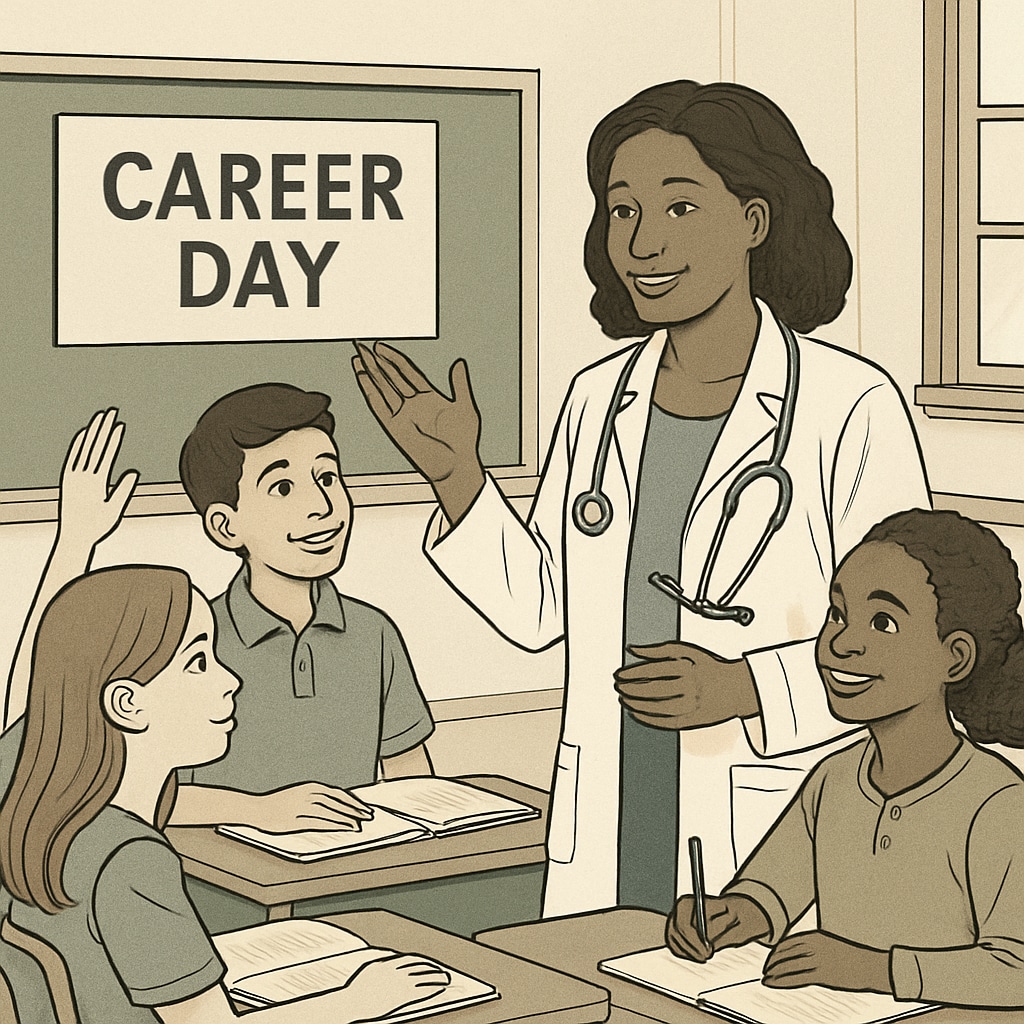The inclusion of medical career interviews in K12 school projects can significantly influence students’ understanding of future professional paths. Introducing students to structured interviews with healthcare professionals offers them the opportunity to gain insights into the medical field, ask relevant interview questions, and develop essential life skills. These interactions not only provide a clear view of what a medical career entails but also enhance students’ critical thinking and social capabilities, laying a solid foundation for their future.
Why Medical Career Interviews Matter in K12 Education
Medical career interviews offer students a unique chance to connect with professionals and explore the realities of a career in healthcare. During their formative years, students are often unaware of the diverse roles within the medical field. Conducting structured interviews allows them to engage with physicians, surgeons, nurses, and other healthcare professionals, giving them firsthand knowledge of daily responsibilities and the education paths required.
For example, students can ask questions like, “What inspired you to pursue this career?” or “What challenges do you face daily?” Such inquiries help students understand the human side of medicine, beyond textbooks and classroom discussions. This type of exposure not only informs their career decisions but also instills a greater appreciation for the dedication involved in healthcare professions.

Benefits of Structured Interviews in School Projects
Incorporating structured interviews in school projects offers numerous advantages for K12 students:
- Real-world insights: Students learn about the practical aspects of a medical career, such as work-life balance and the emotional demands of the job.
- Critical thinking development: Preparing thoughtful questions requires students to research and analyze information about the medical field.
- Social and communication skills: Talking to professionals builds confidence and improves interpersonal abilities, which are essential for any career.
- Encouragement of long-term planning: Understanding the educational journey—medical school, internships, residencies—helps students plan their academic paths effectively.
In addition, these interviews can help dispel common myths about medical careers. For instance, students may believe that all doctors work in hospitals, but through interviews, they can learn about roles in research, public health, and private practice.

How to Organize Effective Medical Career Interviews
Successfully organizing medical career interviews as part of a school project involves several steps:
- Identify professionals: Reach out to local hospitals, clinics, or alumni networks to find willing participants.
- Prepare students: Teach students how to research the medical field and develop meaningful questions for the interview.
- Set clear objectives: Ensure students understand why the interview is important and what they should aim to learn.
- Facilitate the process: Arrange logistics such as time, location, or virtual meeting platforms for the interviews.
- Reflect and analyze: After the interview, have students write reports or present their findings to the class, fostering peer learning.
By following these steps, schools can create enriching opportunities for students to explore medical careers while enhancing their academic and personal growth.
The Long-term Impact of Career Exploration in K12 Education
Encouraging career exploration through activities like medical interviews has long-term benefits. Students who engage in such projects are more likely to feel prepared and motivated when making academic and career decisions. They gain clarity about the hard work and determination required in the medical field, helping them develop resilience and a proactive mindset.
Moreover, these experiences expose students to role models who inspire them to pursue their goals. For some, these interactions may ignite a passion for healthcare that lasts a lifetime, ultimately contributing to the growth of a well-informed and dedicated future workforce.
In conclusion, integrating medical career interviews into K12 education is a powerful way to prepare students for their futures. By combining real-world insights with skill-building opportunities, these projects empower young learners to make informed decisions about their academic and professional paths.
For additional information about career exploration in education, consider visiting resources such as the Education page on Britannica or Career Education on Wikipedia.


